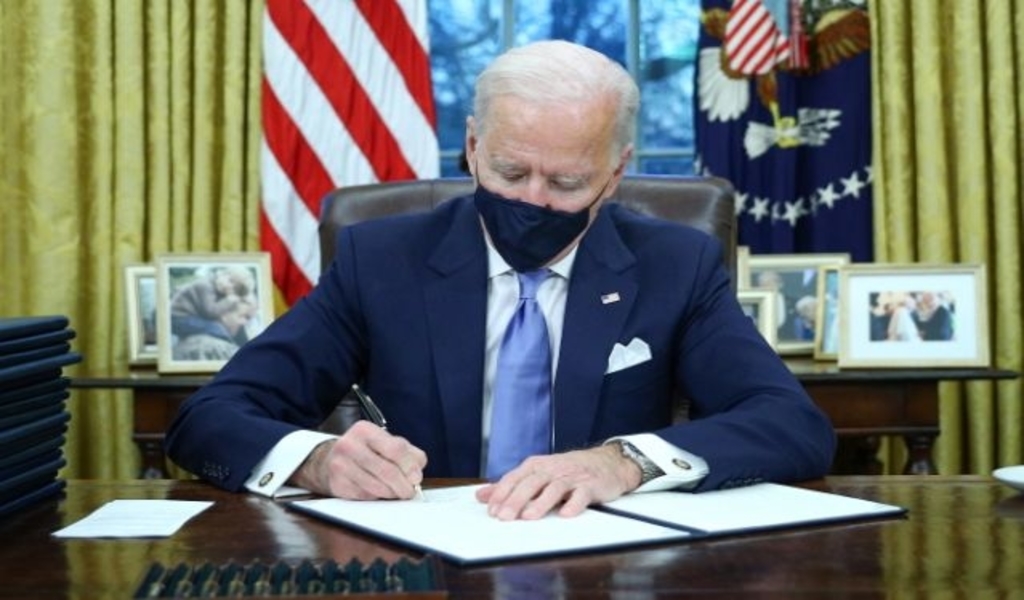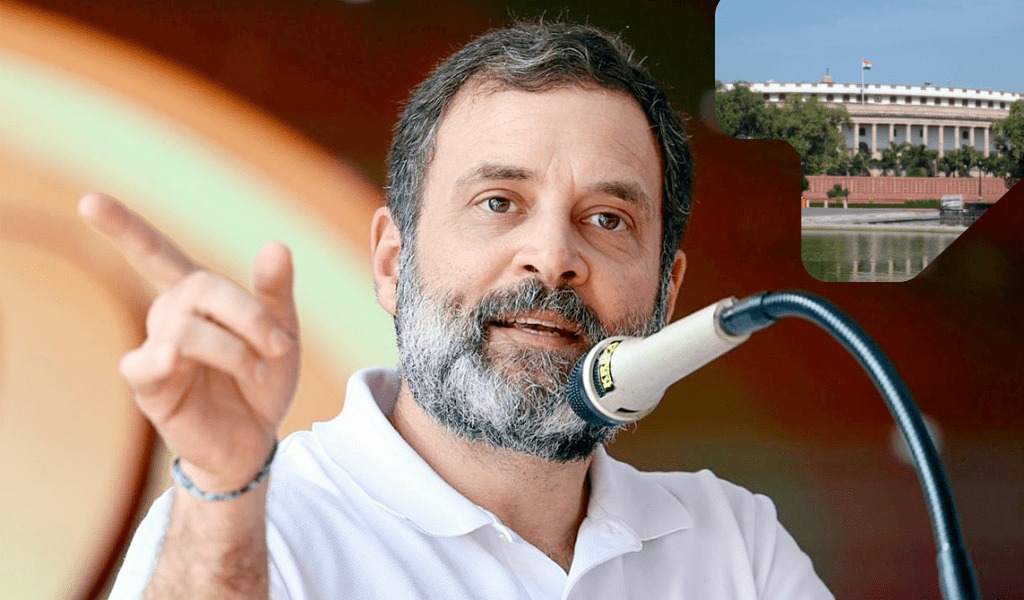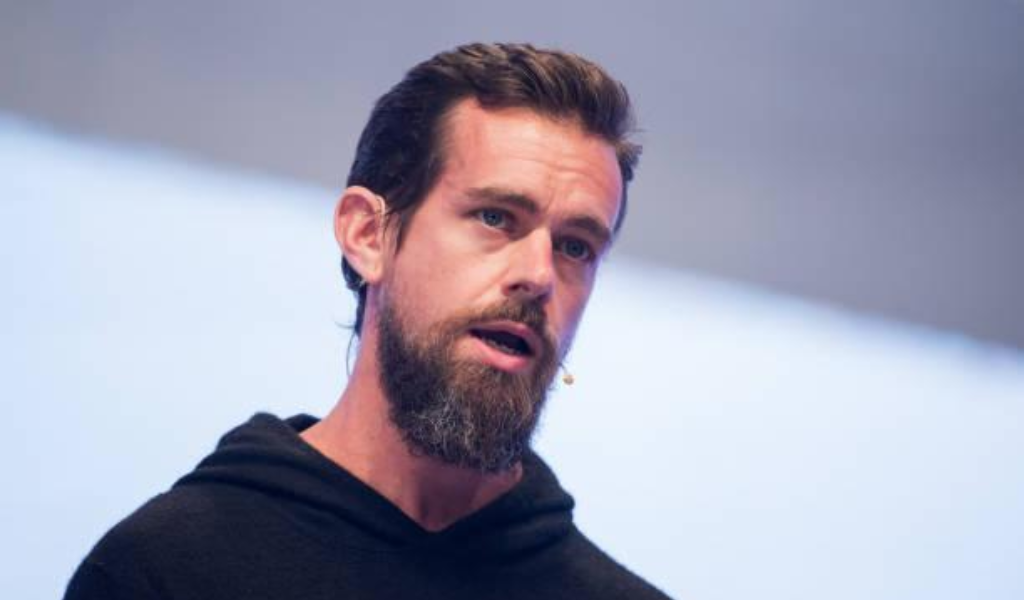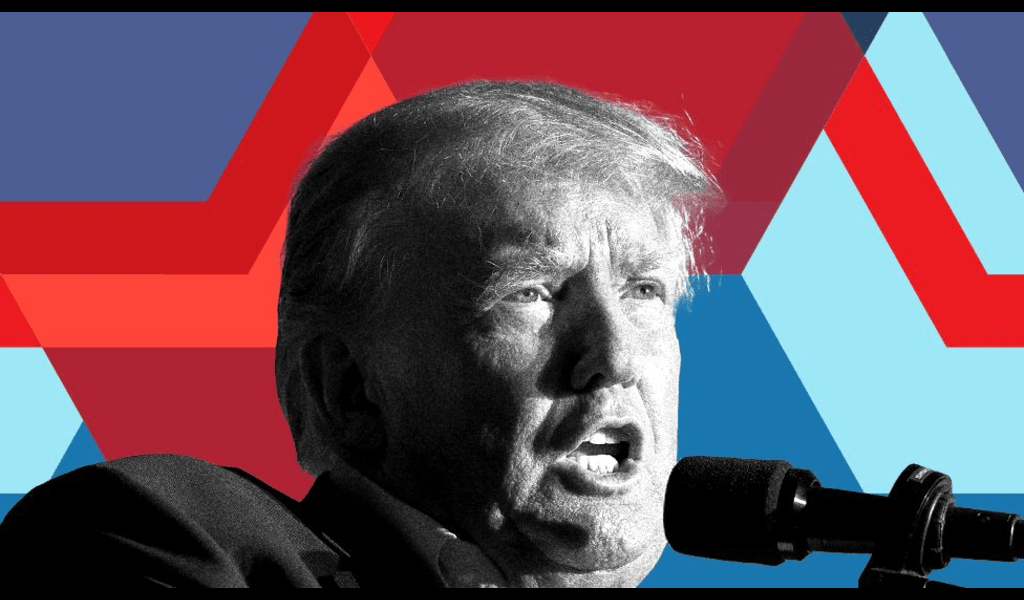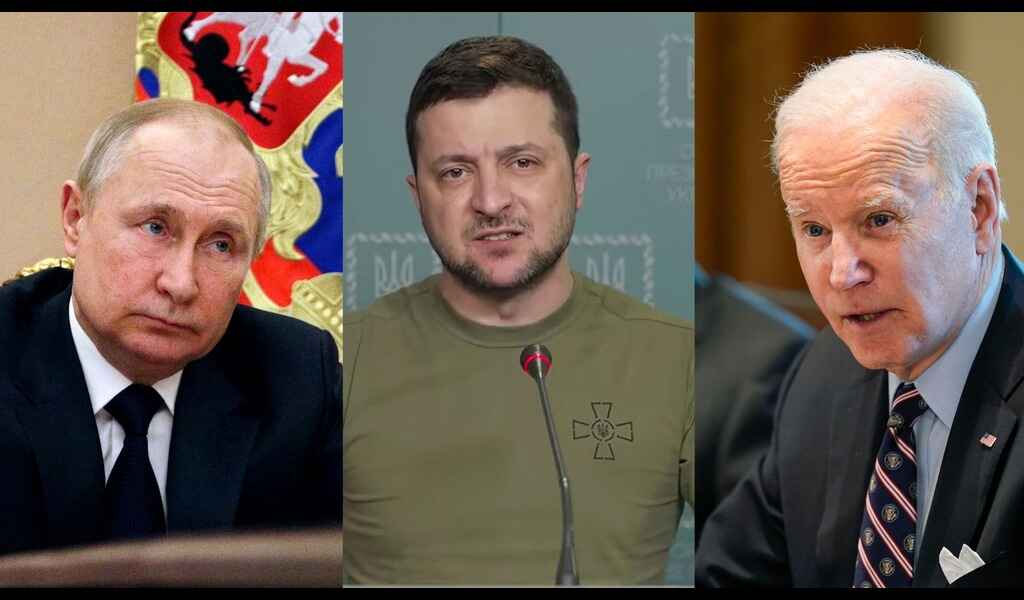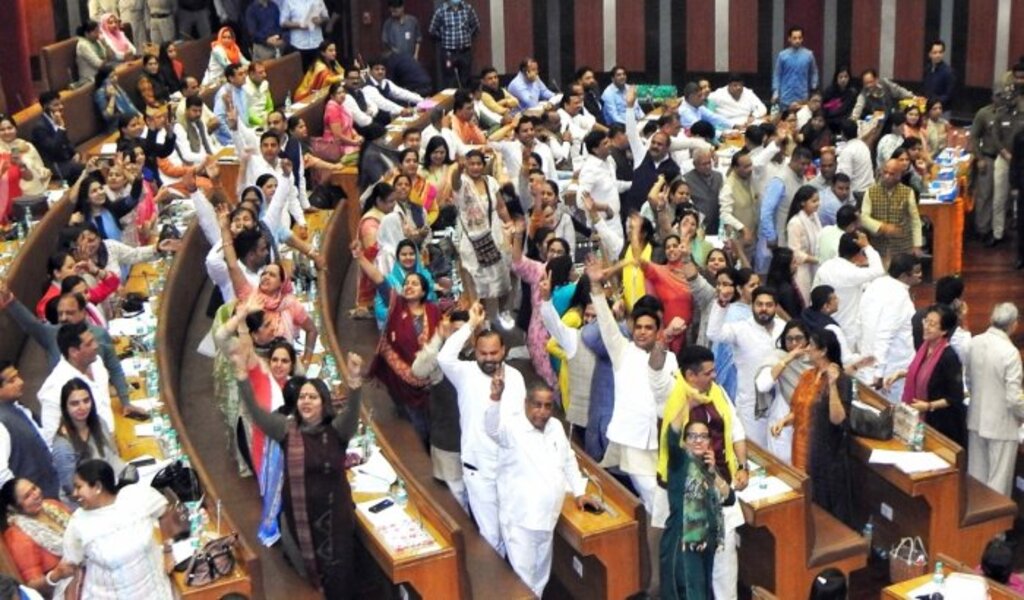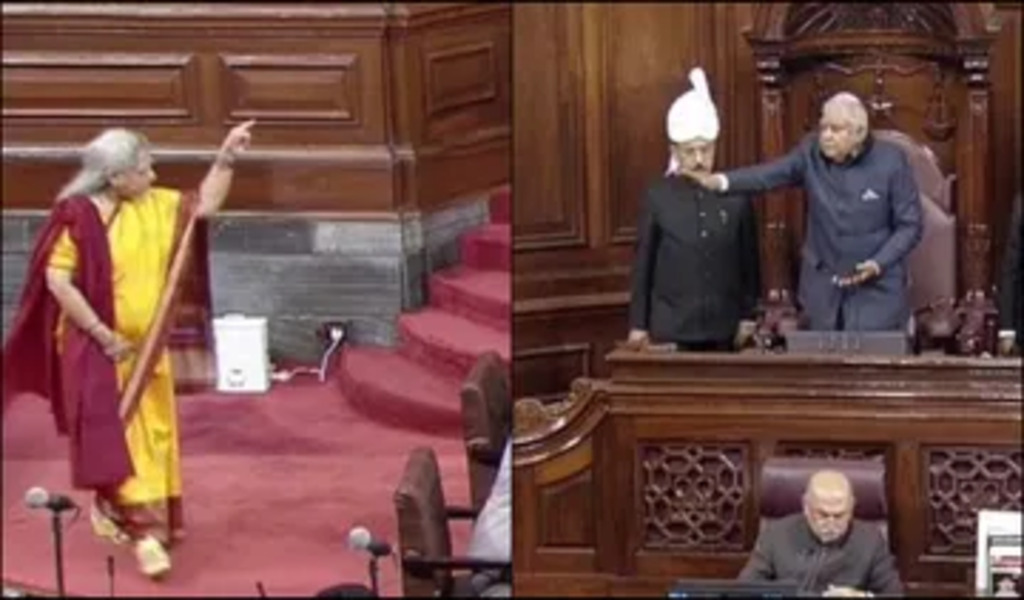"We're back in the Paris Climate Agreement": Joe Biden
Climate Change is one of the most pressing issues in the globalised world. It demands the nation states to take collective efforts to combat the growing danger. It has been projected by the scientists worldwide that the risks due to climate change will be the most important and challenging in the upcoming years.
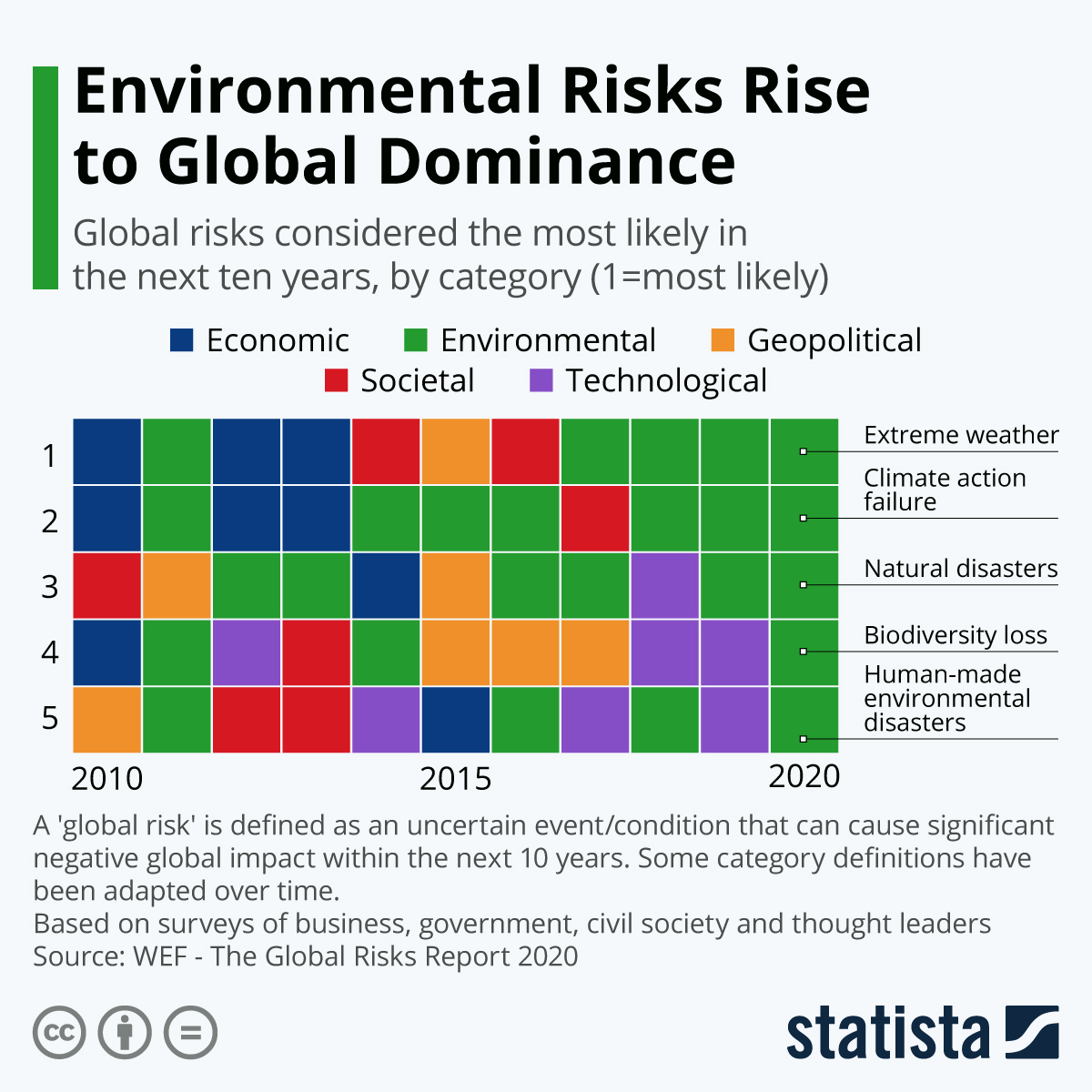
Corporate greed, dependence on fossil fuels, rapid industrialisation are the chief factors which have contributed to global warming and also to the rise of activists like Greta Thunberg.
In accordance with the last available report, the developed countries like the United States emit almost 6.5 billion metric tonnes of Greenhouse Gases every year. This calls for an affirmative action to implement sustainable policies.
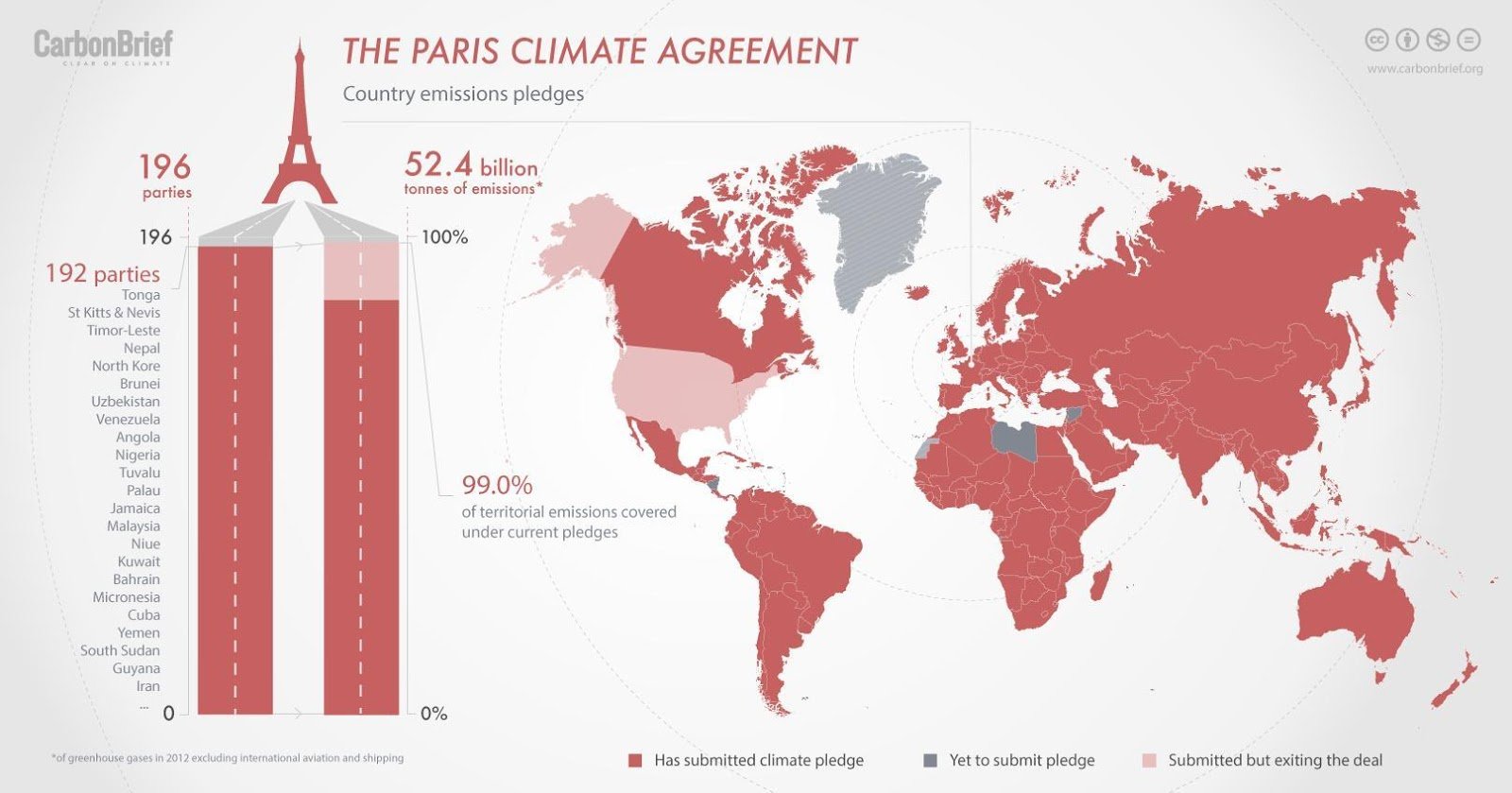
The Paris Climate Agreement is a legally binding international treaty on climate change. It was adopted by 196 Parties at COP 21 in Paris, on 12 December 2015 and entered into force on 4 November 2016. Its goal is to limit global warming to well below 2, preferably to 1.5 degrees Celsius. The countries are expected to support each other financially, technologically and to develop capacity building to avert the risks posed by climate distingeration.
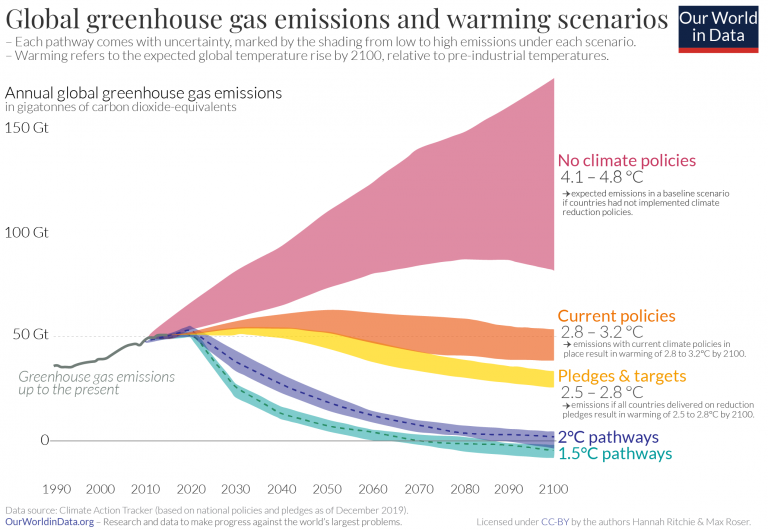
However, on June 1, 2017, the United States President Donald Trump announced that the U.S. would cease all participation in the 2015 Paris Agreement on climate change mitigation. In accordance with the Article 28 of the Paris Agreement, a country cannot give notice of withdrawal from the agreement before three years of its start date in the particular country, which was on November 4, 2016 in the case of the United States. The White House later clarified that the U.S. will abide by the four-year exit process. On November 4, 2019, the administration gave a formal notice of intention to withdraw, which took the next 12 months to take effect.
Trump's withdrawal from the Paris agreement impacted other countries by reducing its financial aid to the Green Climate fund. The termination of the $3 billion U.S. funding ultimately impacted climate change research and reduced the probability of reaching its goals.
The United States contributes more than 15 percent of the total greenhouse emissions after China and is also a global power. Its seclusion adversely affects the goals decided by the mutual agreement.
However, a hope is seen in this regard since as per report published in the New York Times, the newly elected 46th President of the United States, Joe Biden has recommitted the United States to the Paris climate agreement and ordered the federal agencies to start reviewing and reinstating more than 100 environmental regulations that were weakened or rolled back by former President. The decision was welcomed globally and the French President Emmanual Mcaron congratulated and welcomed the move as per reports by the ABC News:
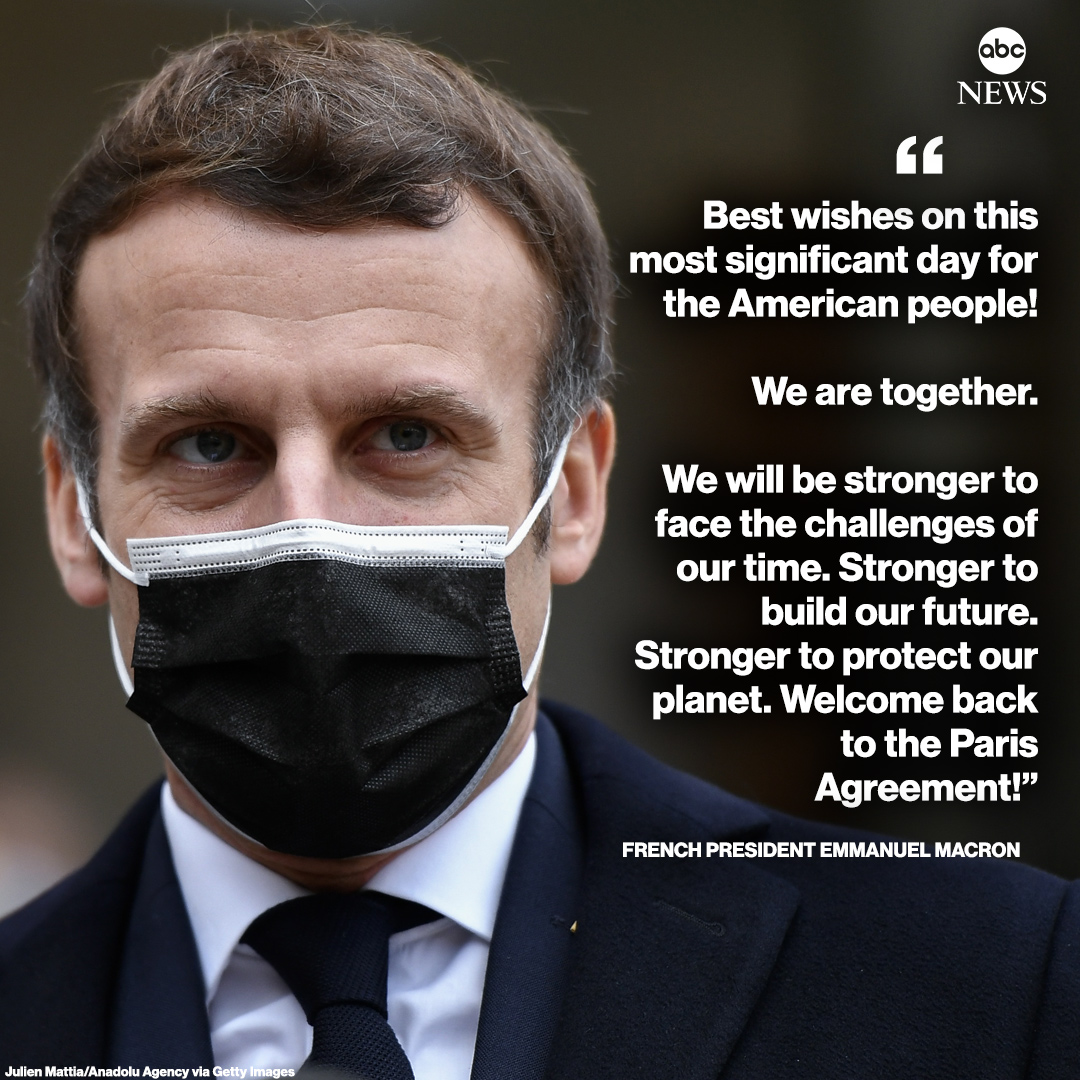
“We’re going to combat climate change in a way we have not before,", he said at the Oval office. “They are just executive actions. They are important but we’re going to need legislation for a lot of the things we’re going to do,", he further added.
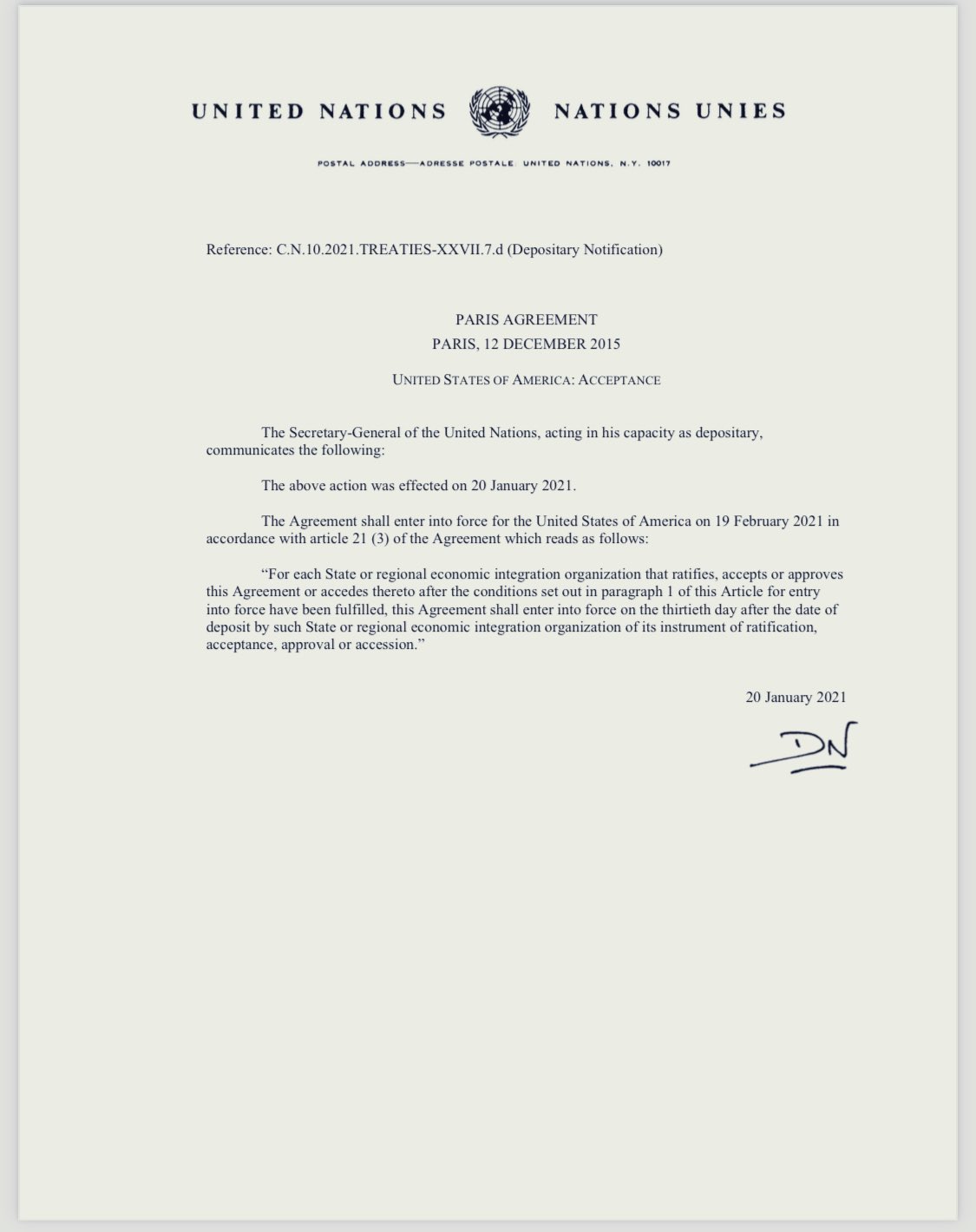
Not just the global leaders but even the netizens bursted out with excitement:
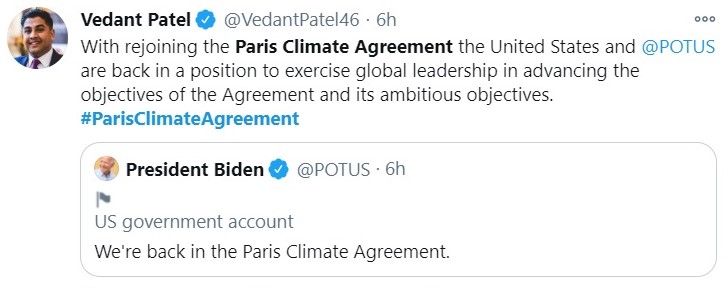
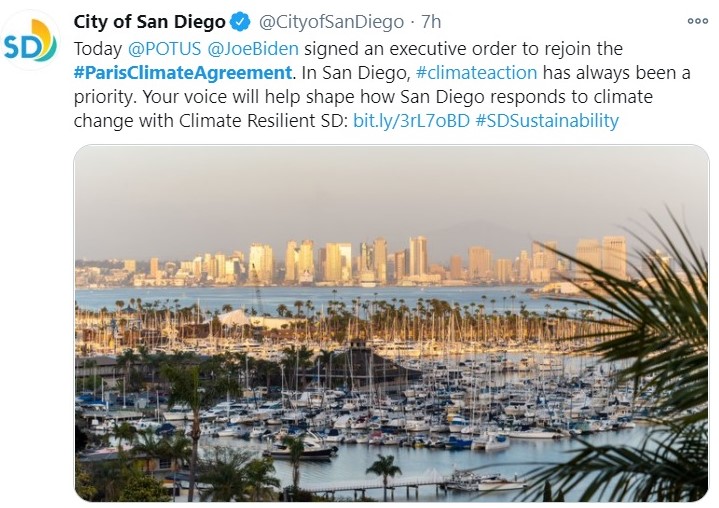
Biden will now be able to unilaterally limit fossil fuel development on federal land and set tougher rules for fuel efficiency in cars and trucks but sweeping climate legislation to make deeper cuts in emissions will be more challenging to get through the Congress which is still divided 50-50 on the issue. Biden also hopes of providing huge financial support to boost clean energy such as solar and wind may rely upon funding being included in budgets and infrastructure bills.
The move has been welcomed by scientists worldwide and provides a respite to those continuously voicing for the cause.
“Even if we can’t get new climate legislation, our executive branch already has many tools to act,” said Leah Stokes, an expert in environmental policy at the University of California. “The best time to cut emissions was decades ago; the second-best time is today.”
Climate Change is real and we at Checkbrand urge our readers to take necessary steps to combat global warming and to develop sustainable living. Let us collectively build a world where the environment does not need protection.
CATEGORIES
- Digital Marketing
- Marketing
- Entertainment
- Medical
- Science and Technology
- Politics
- Sports
- Environment
- Campaign
- Interview
- Viral
- What's Trending
- Trending News
- Viral Videos
- Youtube Trends
- Social Media Ranking
- Twitter Trends
- Google Trends
- Top Politicians
- Top Cricketers
- Top Influencers
- Best Campaigns
- Google News
- News
-
 Oct 11, 2020
Oct 11, 2020SEO Content Writing Vs. SEO Copywriting:...
-
 Dec 15, 2020
Dec 15, 2020#Karnatakaiphoneplantagitation: Workers...
-
 Dec 15, 2020
Dec 15, 2020#OLA Invests ₹2400 Crores For Our Futur...
-
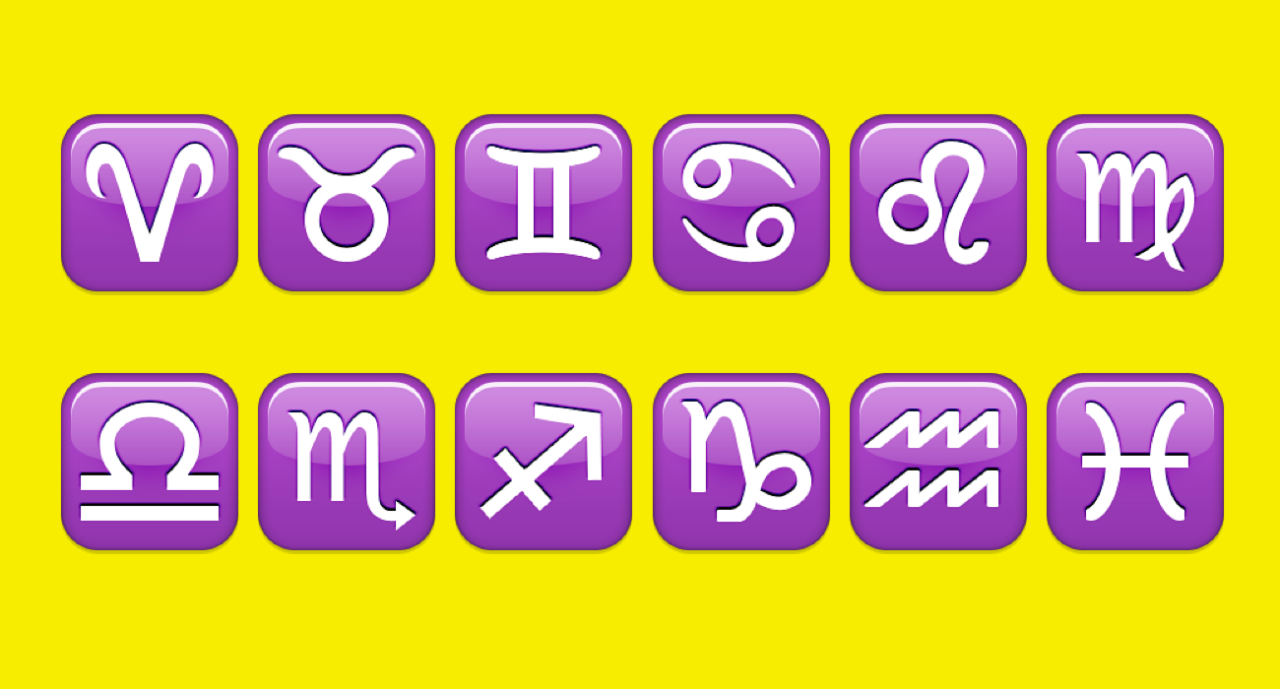 Dec 15, 2020
Dec 15, 2020#Snapchat Launches Astrology Profile
-
 Dec 15, 2020
Dec 15, 2020Know Why #BOYCOTTJIOSIM Is Trending On S...
-
 Aug 01, 2023
Aug 01, 2023India's Chandrayaan-3 On Track For Lunar...
-
 May 17, 2023
May 17, 2023Zara Hatke Zara Bachke Trailer Review(Ra...
-
 Aug 04, 2022
Aug 04, 2022'Har Ghar Tiranga' Campaign Created Stor...
-
 Dec 16, 2020
Dec 16, 2020#Skillhaitohfuturehai: Mahindra's Flagsh...
-
 Dec 15, 2020
Dec 15, 2020#OLA Invests ₹2400 Crores For Our Futur...
HIGHLIGHTS
- Realme Pad Specifications Teased, Will C...
- MARKETS: Sensex Down 300 Pts, At Days Lo...
- Afghanistan Crisis Live Updates: NIA Chi...
- Women Will Be Admitted To NDA, "Historic...
- Taliban's New Education Minister Says Ph...
- India's T20 World Cup Selection Question...
- New JioFiber Quarterly Broadband Plans I...
- Explained: How Your Cat Got Its Stripes...
- Who Is Aesha Mukherji? All You Need To K...
- Long Live Test Cricket While We've Virat...


